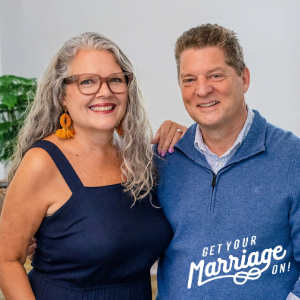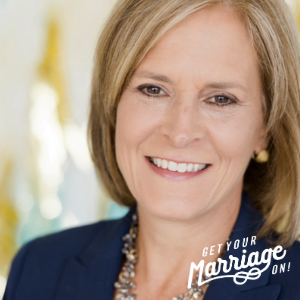There is a question that philosophers, scientists, and artists alike have been trying to answer for centuries: What is love? Some believe it is an emotion, others believe it’s a choice. Some claim love is an evolutionary trait designed to further the human race. But why is it so important to know what love is?
Love is typically the glue that holds a marriage and a family together. “Falling out of love” is one of the leading reasons for divorce, and the fear of many newlywed couples. As Taylor Swift said, “There’s many different ways that you can kill the one you love … The slowest way is never loving them enough”. It is so important to know what love is because we all want it, and are terrified of losing it. We want an assurance that our spouse will always love us and that we will always love them.
In this blog post, we will talk about one theory on what love is and how we can keep that flame burning bright in our marriages. Love is an emotion, and it’s also a choice. It is a gift from God and a part of what it is to be human. How can this one concept be so many things simultaneously?

The Triangle of Love
Robert Sternberg has a triangular theory of love that explains all the different aspects of love. Love is a triangular concept combining three pieces; intimacy, commitment, and passion. Although there is a lot of overlap in these aspects, generally intimacy is the spiritual piece of love. Commitment is seen as the cognitive choice of love, and passion is the emotional realm.
Intimacy
Intimacy is a feeling of being connected to and bonded with another person. It is adopting that person’s wellbeing and happiness as your own. It is a sense of closeness and a deep understanding that transcends cognitive thought. Intimacy is a goal that is never fully attainable as we will always need to be working on it.
Intimacy exists in several different realms. You can experience intimacy emotionally, socially, intellectually (understanding their way of thinking), sexually, recreationally (shared experiences), spiritually, and aesthetically (a shared sense of beauty and appreciation). And in our marriages, we seek to build intimacy with our spouse in all of these areas!
People are always growing and changing. Therefore, intimacy is like a moving sidewalk. If we stop trying to build intimacy with our spouse, the flow will take us further away from them. We constantly need to be developing intimacy with our spouse. Think of it this way. Each day, you wake up next to a new person to fall in love with.
Commitment
Commitment is the more cognitive aspect of love. It is defined as our choice to care for and invest in this person. When we get married, we make a social commitment recognized by our society to honor and cherish your connection to this person. As Christians, we also make a commitment to God to care for and grow with this special soul. A marriage commitment usually includes emotional and sexual monogamy, and a dedication to share all aspects of life with your chosen partner.
Each person will have their own definition of commitment influenced by their culture, religious beliefs, and upbringing. It is important for a couple to understand what commitment means to each of them. Each couple needs to come up with a mutual understanding of what they are committing to.
Commitment is also a dynamic phenomena. Although we are married to our spouse only once (usually) we must choose to make the same commitment every day.
Passion
Passion can be simply described as a longing to be with someone. This is the realm of romance and attraction. It is typically the first aspect of love to develop. When you experience love at first sight, that attraction is passion.
Passion is not bad. However, passion can hurt a marriage when we foster passions that take us away from our spouse. In extreme cases, this looks like passions that lead to affairs. In other cases, our passion for success or our own interests can get in the way of building intimacy. We can experience the first stages of passion (attraction) quickly and without realizing. When we have commitment to someone, we seek to bridle that passion and direct it towards the object of our promise. Some people will chase their passions to the detriment of commitment and intimacy. But that doesn’t have to be the case!
Bridleing our passions doesn’t mean to crush them, but to rein them in and direct them in the direction we want to go. When commitment and intimacy are both present, the initial attraction of passion can grow to become a need for our spouse that leads to self-actualization. This strong emotion can deepen with time and create a strong bond with our spouse that helps us become the best version of ourselves.
Bringing it all together

These three pieces work together to create love. Sometimes, we are lacking in one or more of these areas. Stenburg described all of these conditions…
- Nonlove: absence of all three
- Infatuated Love: only passion
- Empty Love: only commitment
- Liking: only intimacy
- Companionate Love: commitment and intimacy
- Fatuous Love: commitment and passion
- Romantic Love: intimacy and passion
- Complete Love: all three
Obviously, complete love is the goal. When we increase in one of these areas with our spouse, we deepen our love. A marriage means consistently working on each of these areas as you and your spouse grow together. If you feel like you have some work to do in one of these areas, here are some suggestions of how to grow your love.
How do we build love?

Intimacy
Here at Get Your Marriage On!, we talk a lot about how to build intimacy. Here are a few suggestions, but for more check out our Intimacy and Emotional Needs section! We can increase intimacy by having new experiences together. As we go through life, we seek to learn new things with our spouses. We also have to be brave enough to show up as our true selves.
Commitment
Take the time to define commitment. What did you promise when you got married? Commitment is often shaped by moral values, and filled in with shared memories and meaning. To improve your sense of commitment, review the reward-cost balance in your relationship. Choose to focus on the reward. Foster a sense of “we-ness” in your marriage where you celebrate your spouses wins as your own and mourn their losses with them. Commitment is the cognitive choice to love this person. Be deliberate in making your choice everyday.
Passion
Again, increasing passion is what we do! Increasing the passion means believing there is still something to discover in your relationship. Sexual passion is about creating a sexual landscape that you can both explore together. If you want some ways to heat up the passion in your marriage, download the Intimately Us app and see how much you have to discover together!

Conclusion
Love is an elusive concept, and I’m sure I was not able to completely capture all that it is in this post. However, this model of love can help us understand the emotional, spiritual, and cognitive aspects of love and then use it to continuously deepen our love for our spouse and work towards the complete love God wants for His children.
Written by Amanda Severson with Get Your Marriage On!
Reference
Couples in Treatment: Techniques and Approaches for Effective Practice (3rd Ed.) by Gerald Weeks (ISBN-13: 978-0415720311)

I love this app! My husband and I are such busy people, this helps us stop and make sure we show the love that we have for each other. I’d give 6 stars if I could!
This is by far the #1 sex app for Christian couples! My wife and I played the games like 5 times over the last week. Sparks are flying and we’ve never felt so close before. Thank you!






